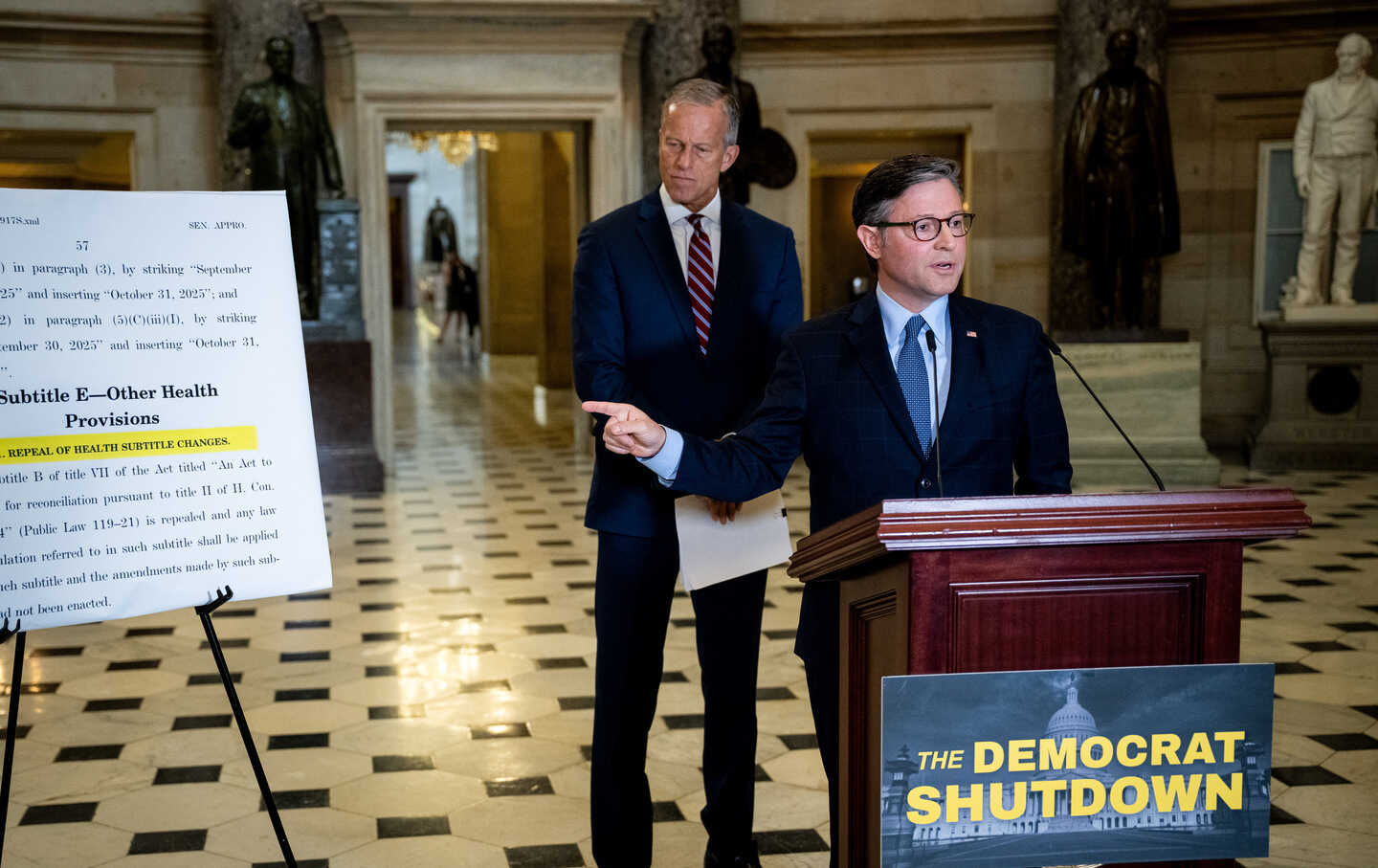
Donald Trump’s latest government shutdown is not merely a political maneuver; it is a grim reminder of how those in power use crises to further entrench their control over the lives of ordinary Americans. This shutdown, steeped in falsehoods and scapegoating, showcases a dangerous political strategy that prioritizes austerity over the well-being of our citizens.
In recent discussions, my colleague Chris Lehmann and I delved into the shifting rhetoric of the Trump administration, which began with deceitful and racially charged accusations about undocumented immigrants unfairly benefiting from government programs. This divisive tactic is not new; it serves to distract from the larger systemic issues at play, namely the deep-rooted inequities and injustices within our political and economic structures.
The current climate reflects a broader trend in American politics where social safety nets are systematically dismantled under the guise of fiscal responsibility. Austerity is sold to the public as a necessary evil, yet the reality is that it disproportionately impacts marginalized communities, making it a tool of oppression rather than a solution to fiscal woes. While the wealthy continue to accumulate wealth and power, working families bear the brunt of these harmful policies.
The Democratic Party’s response to this latest crisis has been met with scrutiny. There is a palpable shift as the party’s base demands a stronger, more assertive stance from its leaders. Grassroots movements are pushing back against the status quo, reminding us that accountability is not just a buzzword, but a necessary condition for genuine democracy. We are witnessing a pivotal moment where the demands for social justice, equality, and human rights are coalescing into a force that cannot be ignored.
Moreover, Trump’s playful gloating over the consequences of the shutdown reveals a chilling indifference to the struggles faced by millions of Americans. While he revels in the chaos, families are left wondering how they will pay their bills, access healthcare, or provide for their children. The impacts of a government shutdown are not abstract; they are very real and devastating for those already teetering on the brink of financial insecurity.
As we navigate this ongoing crisis, it is crucial to connect individual experiences with broader systemic issues. The government shutdown is not just a political spectacle; it is a manifestation of the deep-seated inequities that plague our society. We must challenge the entrenched power structures that allow this kind of political theater to unfold at the expense of the most vulnerable among us.
In the face of such adversity, it is imperative that we hold our leaders accountable and demand policies that prioritize the needs of all citizens, rather than the whims of the powerful few. The struggle for social justice and human rights is far from over, and it is vital that we remain vigilant, mobilized, and unwavering in our pursuit of a more equitable society. The consequences of inaction are dire, and it is our collective responsibility to ensure that the voices of the marginalized are heard loud and clear in the halls of power.
This article highlights the importance of Play Behind Shutdowns.


